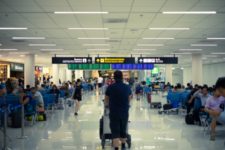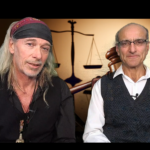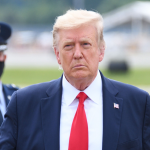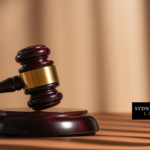The Australian Border Force: What Powers Do They Have?

If you watched the news towards the end of last week, chances are you heard about the Australian Border Force (ABF) debacle which sparked a massive protest in Melbourne’s CBD on Friday afternoon.
The outrage was triggered by a poorly-worded press release which was published on social media, stating that the newly-formed Australian Border Force would implement ‘Operation Fortitude’ whereby they would speak to ‘any individuals we cross paths with,’ warning that officers would be checking visa details.
It was accompanied by a threat from ABF Regional Commander Don Smith: that ‘you need to be aware of the conditions of your visa; if you commit visa fraud you should know it’s only a matter of time before you’re caught out.’
Unfortunately for Mr Smith, it was only a matter of time before the situation exploded into a full-blown catastrophe, with members of the public outraged at the prospect of individuals being randomly targeted on the streets, reminiscent of Nazi Germany.
Was It All A Mistake?
As protestors began to gather outside Flinders Street Station just hours after the announcement, the ABF tweeted that it ‘does not and will not stop people at random in the streets… the ABF does not target on the basis of race, religion, or ethnicity.’
A scheduled press conference was cancelled minutes later – and the Operation was then cancelled in its entirety just before 3pm, with Victoria Police issuing a statement that ‘there has been a high level of community interest and concern which has been taken into consideration when making this decision.’ It seems that people power prevailed.
Since the debacle, officials have played the blame game, with no-one willing to take responsibility for the situation.
Victorian Police Minister Wade Noonan blamed the ABF for its ‘unfortunate and inappropriate characterisation.’
But ABF Commissioner Roman Quaedvlieg denied responsibility, stating that ‘There was never any intent for the border force to proactively go out and seek immigration breaches in the Melbourne city.’ He blamed junior staff members for the poorly-worded release.
Prime Minister Tony Abbott also passed the buck, calling the press release ‘over the top and wrong,’ and saying that he had no prior knowledge of the event.
Meanwhile, Immigration Minister Peter Dutton has been left red-faced after it transpired that his department had received an advance copy of the release. Dutton claimed that no-one had read the document, and that his department had assumed it was part of a routine operation.
Labor ministers have accused the government of shifting the blame, with Opposition Leader Bill Shorten saying that top-level ministers should ‘stop blaming the people in uniforms for what goes wrong and start taking some responsibility.’
What Powers Do Border Force Officers Have?
While the plug was pulled on Operation Fortitude at the last minute, the debacle has prompted many to question the powers attached to the newly-formed ABF.
The ABF was formed on the 1st of July this year following the passage of the Australian Border Force Act. This was part of a plan to merge the border control functions of the Department of Immigration and Border Protection together with Customs.
The move was designed to ‘generate significant savings’ whilst facilitating a ‘more effective approach to border protection.’
While the creation of the ABF was couched in terms of efficiency and monetary savings, a closer look reveals that it was also a convenient mechanism for the government to gain greater powers over the community.
Unlike their immigration department predecessors, ABF officers are able to carry firearms and detain people, and are decked out in paramilitary-style gear.
But Can the ABF Undertake Visa Checks?
To answer this question, it’s necessary to take a closer look at the Australian Border Force Act.
Frighteningly, section 10 of the Act gives the ABF Commissioner the ‘power to do all things necessary or convenient to be done for or in connection with the performance of his or her duties.’
And, under section 25 of that Act, the Commissioner may delegate ‘any of his or her functions or powers’ to any public service employee who is in the ABF – and even to people who are performing services on behalf of the ABF.
Section 10 is phrased so openly for obvious reasons – to give the ABF power to do whatever they want as long as they claim it is in connection with their duties. The broad scope of the section would almost certainly include the power to stop and demand visa details from anyone they want – there is no requirement of a ‘reasonable suspicion’ or otherwise. The potential breadth of the section is deeply concerning.
Indeed, the power is far broader than that contained in section 188 of the Migration Act 1958, which states that:
‘An officer may require a person whom the officer knows or reasonably suspects is a non-citizen to:
a) present to the officer evidence (which might include a personal identifier referred to in subsection (4A)) of being a lawful non-citizen; or
b) present to the officer evidence (which might include a personal identifier referred to in subsection (4A)) of the person’s identity.’
The word ‘officer’ as used in section 188 refers to:
- An officer of the Department of Immigration;
- A Customs officer;
- A protective services officer with the AFP;
- A member of the AFP or a state or territory police officer;
- A member of the police force of an external territory;
- A person authorised in writing by the Minister to be an officer for the purposes of this Act; or
- Any person who is included in a class of persons authorised in writing by the Minister to be officers for the purposes of this Act, including a person who becomes a member of the class after the authorisation is given.
Notably, ABF officers fall outside this definition, and are not limited by it. Indeed, their powers are frighteningly broader.






